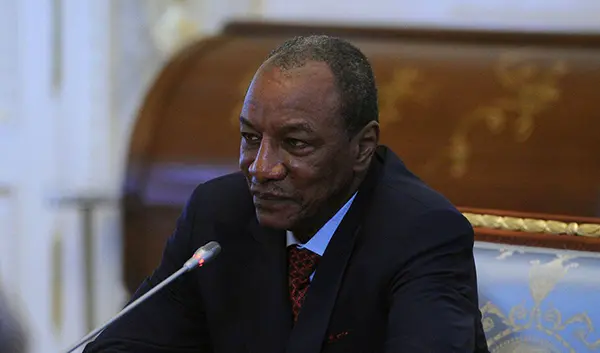Leaders from the 10 ASEAN member countries on Wednesday pledged to intensify their community-building efforts, and to work on a post-2015 vision for the ASEAN Community.
Wrapping up the 23rd ASEAN Summit here Wednesday, the leaders reaffirmed in a Chairman's Statement the importance of drawing upon the experiences and endeavors of ASEAN in further strengthening the existing bonds of solidarity and cooperation to advance common interests and overcome challenges within the region and beyond.
They also agreed to strengthen the ASEAN Secretariat and review the various ASEAN organs, its processes and institutions in ensuring ASEAN's centrality in the evolving regional architecture.
The leaders noted with satisfaction the continued progress recorded in the implementation of the ASEAN Political-Security Community (APSC) Blueprint, saying it would further strengthen the foundation for dialogue and cooperation for the maintenance of peace, security and stability in the region.
According to the statement, 279 measures, or 79.7 percent of the ASEAN Economic Community (AEC) Blueprint have been implemented.
Holding that the economic prospects for ASEAN remain broadly positive, the ASEAN leaders reiterated the need to enhance the bloc's competitiveness and continue deepening and broadening economic integration in the region in order to meet the set targets in a timely manner.
A report indicating that the ASEAN Socio-Cultural Community ( ASCC) Blueprint is at a crucial turning point was approved at the summit under the theme "Our People, Our Future Together."
Implementation of the blueprint has been "generally positive" over the past four years with about 90 percent of the action lines carried out, according to the Final Report of the Mid-Term Review of the Implementation of the ASEAN Socio-Cultural Blueprint.
"But its implementation has reached a critical juncture," the report by an independent consultant said. "While many stipulated action lines are achieved or on track, it is important to closely monitor such ongoing action lines including those still under formulation to ensure that concerted and timely actions are taken. "
The leaders reaffirmed their commitment to work closely with all their external partners to ensure the maintenance of peace, security and prosperity through the various ASEAN-led processes, including the ASEAN Plus One, ASEAN Plus Three, ARF, ADMM-Plus and East Asia Summit.
The situation in the South China Sea continued to be an important topic at the summit, as the ASEAN leaders further reaffirmed the importance of maintaining peace, stability and maritime security in the region in accordance with the principles contained in the Declaration on the Conduct of Parties in the South China Sea (DOC), ASEAN's Six-Point Principles on the South China Sea, and the Joint Statement of the 15th ASEAN-China Summit on the 10th Anniversary of the DOC.
In the statement, the leaders also stressed the need to maintain peace, security and stability in the Korean Peninsula, and encouraged peaceful dialogue including creating a positive atmosphere for the resumption of the six-party talks.
The summit also adopted a Bandar Seri Begawan Statement on the ASEAN Community's Post-2015 Vision, under which the ASEAN Coordinating Council is tasked to develop ASEAN's future development plans in consultations and coordination with the three ASEAN Community Councils.
Brunei's Sultan Haji Hassanal Bolkiah, chair of ASEAN summit this year, highlighted two points that must be further strengthened as part of ASEAN's preparations for the future: first, ASEAN must strengthen external relations with its dialogue partners as well as with the global community, and second, the bloc must strengthen its institutional support.
The ASEAN leaders also stressed the role of local governments in ASEAN's community building process, particularly to better prepare the region's people to realize the ASEAN Community 2015.
Created in 1967, ASEAN groups Brunei, Cambodia, Indonesia, Laos, Malaysia, Myanmar, the Philippines, Singapore, Thailand and Vietnam.
 简体中文
简体中文



